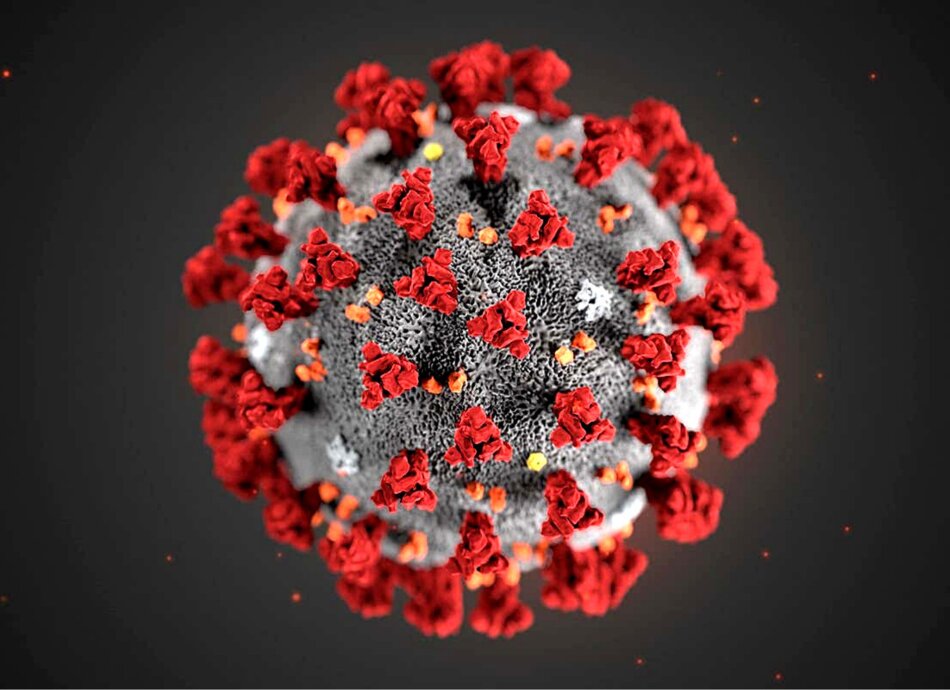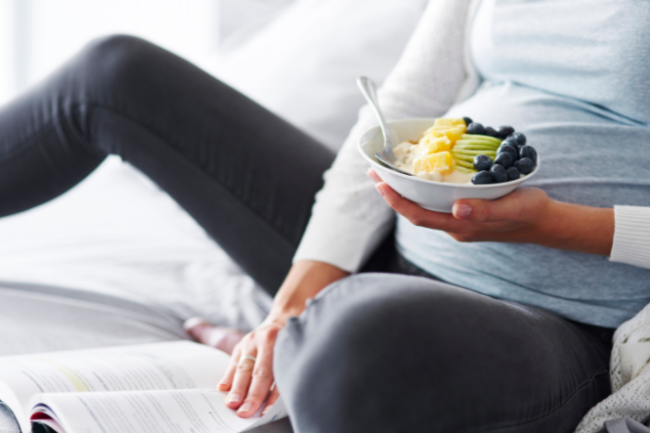COVID-19 positive when you're pregnant
How can I look after myself?
Key points about being COVID-19 positive while pregnant
- This page will give you some advice on what you can do to keep yourself and your baby well if you are COVID-19 positive while you are hapu.
- If you have had a positive test result it is really important that you let your Lead Maternity Carer or LMC know. They have been given guidance on what should happen for you depending on how many weeks pregnant you are, and the types of symptoms you are experiencing.

This video may take a few moments to load.
(Healthify He Puna Waiora, NZ, in partnership with Ministry of Health, 2022)
Some of the information about isolation in this video may no longer apply.
If you have had a positive test result it is really important that you let your LMC know. They have been given guidance on what should happen for you depending on how many weeks pregnant you are, and the types of symptoms you are experiencing.
Evidence from overseas suggests that COVID-19 does not cause miscarriages or abnormalities, but it can increase the chance that your baby could be born early (before 37 weeks) and increases the risk of stillbirth.
It is rare for babies to get COVID-19 from their mother during the pregnancy or during the birth process. Babies that have got it have mostly had no symptoms, or mild symptoms.
Because you have COVID-19 you will be referred to an obstetrics team for an assessment, probably by telehealth, to decide on a plan of care. This will include your primary care health provider or lead maternity carer (LMC) as well. Depending on where you are in your pregnancy, and how well you are managing with any symptoms, you may continue to be cared for by your LMC. Otherwise you may be referred to an obstetrics team for your pregnancy care until you recover from COVID-19. If any extra care is needed it will be organised through discussions between your LMC, the obstetrics team and yourself.
If you need to take pain relief for a headache, or body aches and pains, you can take paracetamol (follow the instructions on the packet). Do not take ibuprofen.
See COVID-19 positive – how to manage your symptoms for advice on non-medicine options that can help relieve your symptoms. For example:
- Blocked or runny nose: Use saline nose drops or spray to help soothe or clear a stuffy nose. Some people find steam inhalation helpful in relieving congestion but it must be used with caution.
- Sore throat: Gargle with salt water, or gargle with warm water to ease a sore throat.
Always talk to your doctor, midwife, or pharmacist before you take any medicines, herbs or homeopathic remedies as they may not be good for you or your baby.
Read about breathing positions that can help if you are finding it hard to breathe – avoid lying on your tummy/puku if you are more than 28 weeks pregnant.
It is helpful to keep a record of how you are doing with COVID-19 symptoms. You may be given a pulse oximeter to check your oxygen levels and heart rate. These readings can be recorded in your diary as well.
| If at any point you are worried about your own well-being or that of your unborn baby, don't hesitate to call your lead maternity carer (midwife or doctor) for advice. If it is an emergency call 111. |
|
Things to look out for are:
|
Make sure you continue to eat a balanced diet. Although you might be relying on things from your store cupboard more often, try to include some fresh fruit and vegetables in your meals. Frozen or canned are fine too.
Water is the best thing you can drink so make sure you drink enough to stay well hydrated. Avoid fizzy drinks, alcohol and smoking.
Sleep is important for you and your baby and you will find that you can cope better if you are well rested. If you have trouble sleeping, practicing relaxation techniques, such as yoga or mindfulness before bed may help you to get to sleep and stay asleep. They can also help with anxiety.
Image credit: Canva
Being pregnant can be stressful enough, without having to think about COVID as well! Stay in touch with friends and whānau, by phone/text conversations or Skype if you are isolating or staying away from people. Try to stay involved in activities (books, movies, quizzes, hobbies) to pass the time as well as to distract yourself from worrying. If you find you are feeling low, anxious, unsafe or like you're not coping, talk to your LMC.
If you go into labour, or think you might be, call your LMC and let them know. They will advise you on what to do.
Once the baby is born there is no reason why you can't breastfeed, cuddle and care for your baby as normal, and share a room with your baby. There is no evidence that the virus can be passed on to your baby through your breast milk. However it will be important to be especially careful with hygiene (clean habits):
- Wash your hands well before touching your baby, breast pump or feeding bottles.
- Wear a mask while you are feeding and holding your baby.
- Clean and sterilise bottles and breast pump thoroughly.
- Try not to sneeze or cough on your baby.
- Don't kiss or touch your baby's face, or touch your own.
COVID-19: Information for women(external link) New Zealand College of Midwives
Apps
Pregnancy, baby care and parenting apps
Resource
COVID-19 positive – how to use a pulse oximeter [PDF, 276 KB] Healthify He Puna Waiora, NZ, 2021
References
- Pregnancy and coronavirus – information for pregnant women(external link) Tommy's Pregnancy Hub, UK
- COVID-19(external link) Health New Zealand | Te Whatu Ora, 2022
- COVID-19 – maternity(external link) Health New Zealand | Te Whatu Ora, 2022
- Care framework for pregnant women and people isolating in the community for COVID-19(external link) Health New Zealand | Te Whatu Ora, 2022
- Info for pregnant women(external link) RANZCOG, Australia & NZ, 2022
- Pregnancy and coronavirus(external link) NHS, UK, 2022
- Coronavirus infection and pregnancy(external link) RCOG, UK, 2022
Credits: Healthify editorial team. Healthify is brought to you by Health Navigator Charitable Trust.
Page last updated:





